How Peach Aviation ensures a smooth & reliable experience during flash sales
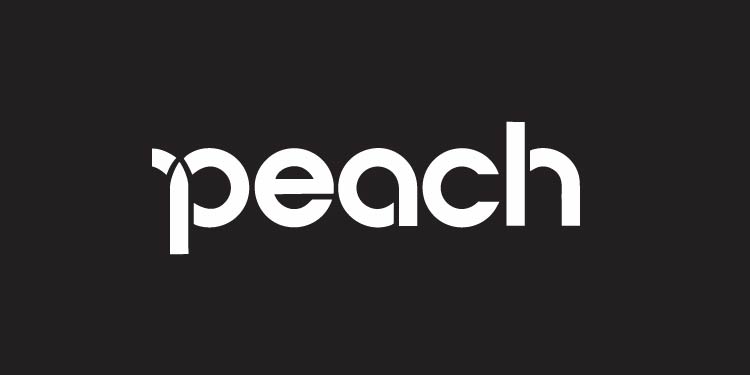
What does it take to be a successful airline? Peach Aviation proves it’s not just about offering the lowest prices, it’s also about providing reliably excellent experiences—both in-flight and online. Discover how Japan’s third largest airline uses Queue-it to ensure a top-tier customer experience during high-demand, high-stakes sales.
“Make air travel easy and affordable for everybody.” This is the unwavering mission of Peach Aviation, the oldest low-cost air carrier in Japan.
When Peach started flying in 2012, full-service carriers dominated the Japanese airline industry. Peach shook up the market with its low costs, playful brand image, and commitment to customer experience. Today, Peach Aviation is Japan’s largest low-fare airline and the third-largest airline in the industry. As of December 2023, it operates 25 domestic routes and 12 international routes, serving over 50 million passengers every year.
What’s behind Peach’s success? Atsumi Murakami, Chief of Innovation at Peach, attributes it to their dedication to their mission and commitment to the customer experience:
“We refer to our services as ‘flying trains.’ We’ve always aimed to create a lifestyle where air travel is more readily available. As a part of this, we do a lot of campaigns and flash sales. But it’s not just about low prices—security and delivering a top-tier customer experience are also top priorities for us.”
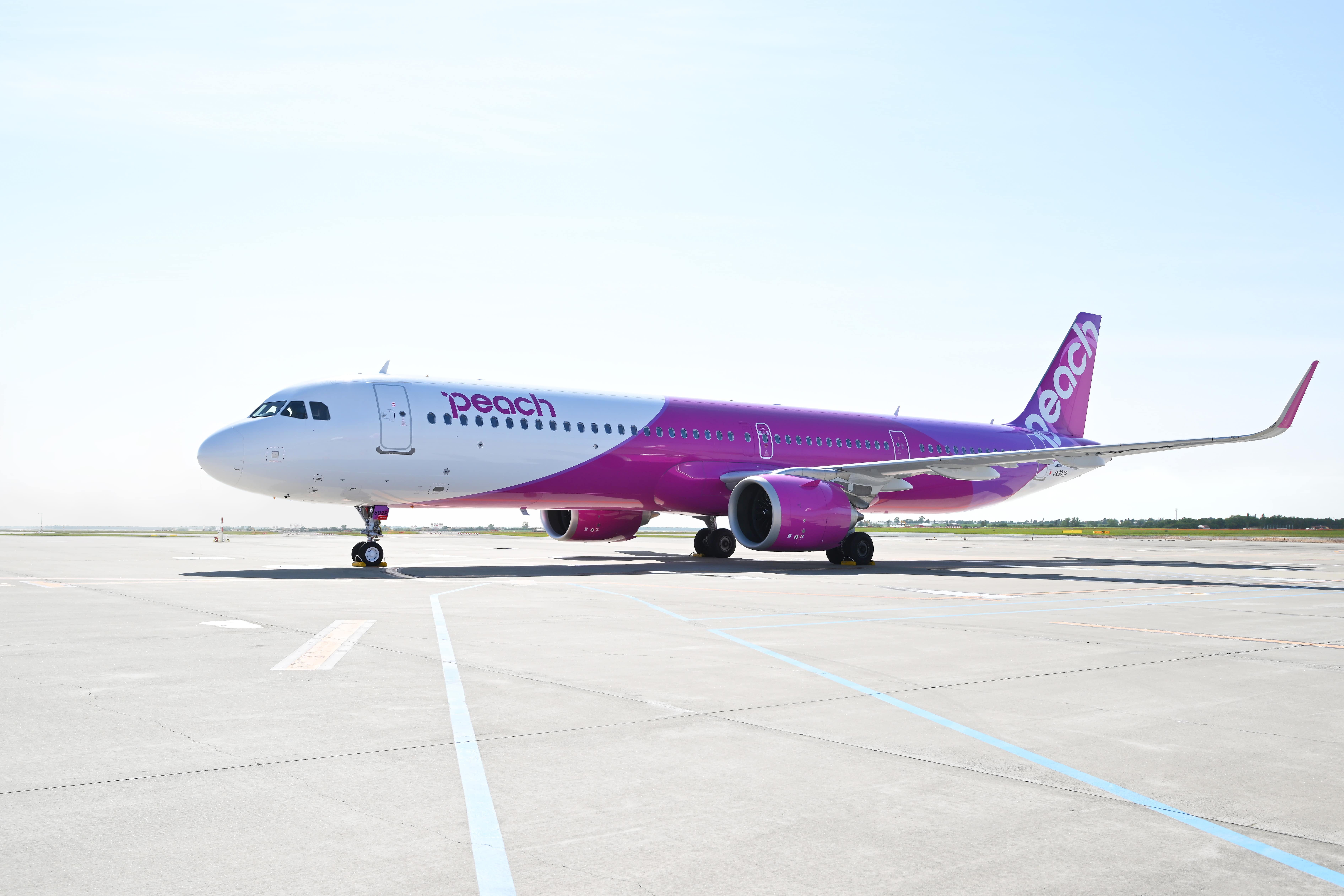
Peach’s aircraft. The company name derives from the fruit, which is associated with youthfulness, liveliness, longevity, prosperity, and happiness in Asia.
In a market dominated by legacy airlines that rarely discount tickets, Peach’s flash sales and marketing initiatives are a hit. But as these sales events grew in popularity, the traffic surges they attracted began to overload the system. We sat down with Murakami to discover how Peach tackled these issues and how they now deliver a seamless, reliable customer experience during peak demand.
After the pandemic-driven drop in air travel, Peach used its flash sales to encourage customers to fly again. They ran a popular series of time-limited offers where tickets were available for as little as 390 JPY (less than $3).
“Thankfully, we had many customers who were interested in the sales. But our systems struggled with the traffic spikes,” says Murakami. “We first tried to handle these issues with autoscaling, but it rarely reacted fast enough to keep up with the sudden surge in users.”
To avoid the whole site going down when autoscaling fell short, the Peach team set up a solution Murakami calls a “sorry page”.
“When traffic exceeded a certain amount, our load balancer would direct the excess traffic to a page with a message saying the website was overloaded,” he explains. “This let us keep the site online, but it wasn’t a good user experience. We received many complaints on social media from customers who faced the page.”
As a brand committed to customer experience, the Peach team knew something needed to change. And with Peach’s 11th anniversary celebration fast approaching, this change needed to happen fast. “With a series of large campaigns planned for this celebration, it was crucial we solve this problem and deliver a smoother customer experience,” says Murakami.
It was around this time that Murakami came across Queue-it’s virtual waiting room. “I liked the fact that Queue-it could improve the website performance without changing the store size, and we could control the traffic according to the system’s capacity,” he says.
Beyond just solving Peach’s technical problem, “It was clear Queue-it had really mastered the art of delivering a seamless user experience,” Murakami says. “The waiting room shows information such as expected wait time and how many people are waiting ahead of you, and the interface is customizable. We were struggling to find a solution to improve UX, and Queue-it was the match we were looking for.”
Peach chose to integrate with Queue-it using the Akamai EdgeWorker Connector. With support from both companies, the whole integration was done within a week.
"Integrating at the edge with Akamai EdgeWorkers made for a fast, simple, and secure Queue-it setup. Thanks to that, we could prepare for the 11th Anniversary within a short period of time."
Atsumi Murakami, Chief of Innovation

“Queue-it’s Japanese staff were very empathetic, and they supported us all the way. Thanks to their help, we could manage the entire process within such a short time.”
Peach’s 11th anniversary event involved huge discounts across hundreds of flights. Domestic flights were available from 1,111 JPY ($75) and international flights were discounted by up to 11 %.
The Peach team knew traffic would be large and customer expectations would be high, but with Queue-it in place, they were confident they could handle it.
When the sale went live, traffic shot up immediately. It peaked at over 4,000 visitors per minute in the first hour of the sale. And across the week-long sale, the waiting room processed over 2 million customers.
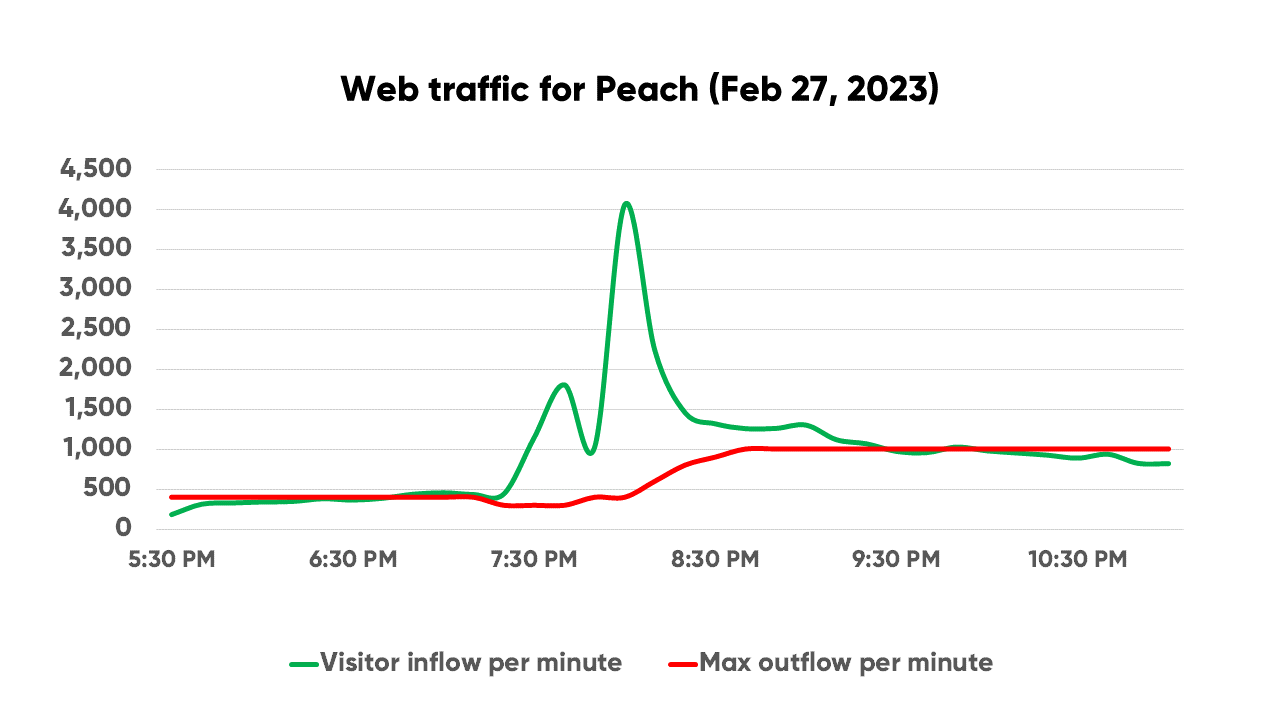
Despite the enormous traffic, Murakami says, the sale was a resounding success. Peach sold thousands of tickets, customers got great deals, and the site ran smoothly and reliably through massive demand. “If it was not for the waiting room, we wouldn’t have been able to deliver the same result.”
Instead of the sorry page Peach previously showed during high demand, excess visitors were placed in a branded queue before being flowed back to the site in fair, first-come, first-served order.
“The waiting room made a big difference compared to our previous solution where we had to turn away many customers at the door,” Murakami says.
“With Queue-it, we could communicate with customers and give them assurance. And when their turn came, they could enter the online store and continue the shopping smoothly."
“We value our brand image a lot, so it’s important that we keep our cute and happy image at every touchpoint with the customers. So we really liked that the waiting room page was customizable.”
Peach's waiting room page
Many customers who participated in Peach’s anniversary sale were quick to praise the new user experience. “Though it was a completely new solution we tried, we got a lot of positive feedback on the waiting room on social media and in surveys,” Murakami says.
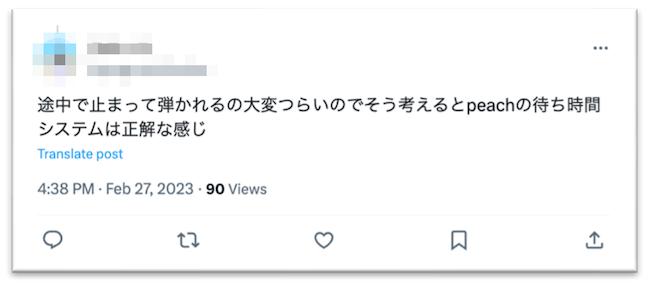
“Peach’s waiting solution feels right, considering how hard it is to get stuck in the middle and kicked out of the sale.”

“It’s so nice and smooth when you know the waiting time. Bravo Peach!”
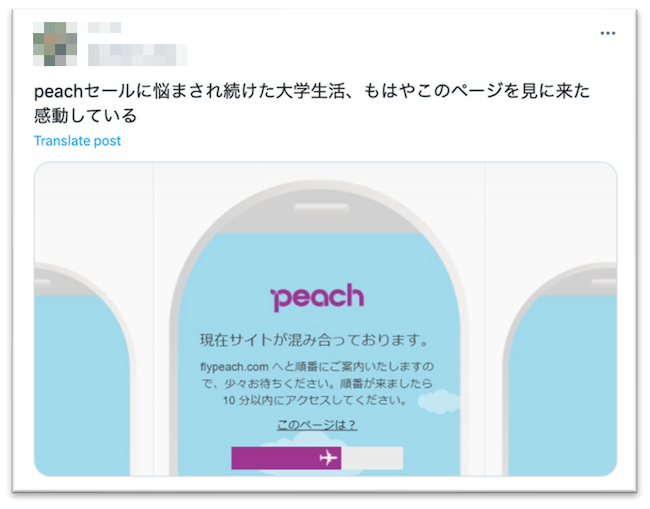
“After having suffered at Peach’s sales for my whole university life … I’m just beyond words.”
The high-demand sales Peach now runs with Queue-it aren’t just a better experience for customers, says Murakami, the whole team’s mood is “significantly better.”
“Before Queue-it, traffic peaks caused a lot of stress for us. We worried the server would crash, and even if it didn’t, we knew it would impact our ability to deliver a good user experience. But with the virtual waiting room in place, we feel protected, and we can focus on monitoring our sales activity. There’s a huge change in our state of mind.”
With speedy integration and an intuitive user experience, the staff at Peach quickly became confident using Queue-it and controlling their traffic flow. “The usability of Queue-it is a big benefit of the solution for us,” says Murakami. “The integration was quick and smooth, and we can easily grasp the real-time traffic information and adjust the outflow depending on how our site’s performing.
“Traditionally, tools to carry out this sort of work require technical expertise,” Murakami continues. “But Queue-it’s solution is user-friendly for both our IT and business departments. The dashboard is simple and intuitive, and business staff could quickly figure out how it works, how the sale is going, and if needed, tweak the traffic outflow. This helped them quickly see the value of the waiting room and understand its benefits.”
The ease of use and utility of software tools across departments, Murakami says, is something Peach is striving to make more commonplace across the company.
“There are a lot of opportunities if business and IT can keep pace with one another. But there aren’t so many people or services that can bridge that gap—which is why BizOps is a focus for so many businesses. This is where Queue-it sits perfectly. It embodies what’s needed from both sides. It bridges IT and business.”
Peach has played an essential role in making air travel a part of Japanese people’s everyday lives. Its success derives from its dedication to keeping prices low without sacrificing the customer experience. And Murakami tells us that this mission will continue to be at the core of their service in the future.
“Getting in touch or getting information has become so easy with a smartphone. But I think when communication becomes so easy, it can actually make it more important to travel physically—to meet someone dear, to see a beautiful landscape or to do an exciting activity. And that’s where we play a role. We’ll continue to provide affordable, safe, and pleasant travel for many years to come.”
With unexpected traffic peaks under control, Murakami says, Peach is looking towards customer engagement activities and how they can use Queue-it to reward loyalty and boost revenue.
“We’ll continue to use Queue-it’s 24/7 peak protection to keep our systems online and ensure a smooth user experience. But we’re also looking at how we can use Queue-it to optimize revenue. We have a membership program for customers who use Peach Card [the airline’s credit card], for example, and we’re testing Queue-it’s invite-only waiting room to give exclusive benefits to our loyal members.”